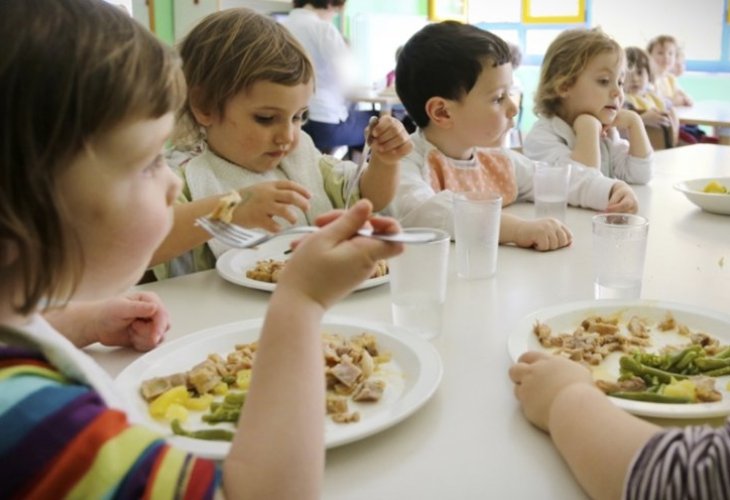What Are Your Kids Really Eating at After-School Programs?
Schnitzel, rice, and vegetables—what's wrong with that? Nothing, until you take a closer look at what's really happening with these lunches.
 (Illustration photo: shutterstock)
(Illustration photo: shutterstock)I try to imagine the ultimate mother: she wakes up in the morning, airing out pillows and quilts on the window sill. She washes the floors with refreshing scents and then runs to the market to buy fresh groceries for lunch. When her children return from school, she greets them with an apron around her waist. She gives them a kiss, and voilà! Everyone sits around the table for a nutritious lunch.
Now let's sharply transition back to reality: for this, I visited several kindergartens' after-school programs. I interviewed assistants, children, and owners of catering companies. Here are the findings, conclusions, and suggestions for improvement. But first, something to consider: when a lunch costs ten shekels, the child might come home full and happy, but it's unsure whether their body thanks you for it.
Carbohydrates: In most cases, we're talking about different forms of wheat flour. That is, couscous, pasta, or star food, which are essentially the same product under different names. Needless to say, the couscous isn't made in the traditional Moroccan way, but rather in the American instant method. The carbohydrate can also be fries, which of course arrive at the catering kitchen frozen. No one peeled potatoes in the morning. The rice might have gotten a passing grade from me, but then I found out each serving contains 4.6 grams of salt and 11 ml of oil.
Proteins: Schnitzels, skewers, beef or chicken patties. Sounds great. Except none of the above were made in the catering kitchen. They are all industrial and frozen products. They just opened the bag, heated it in the morning, and by lunchtime, it reached the kindergarten. And that's not the worst. There's worse: hamburgers, kebabs, and chicken rings. Fortunately, once a week they eat real drumsticks. Which proves it can be done differently.
Vegetables: Here at least we can breathe a sigh of relief: cucumbers, tomatoes, peppers, vegetables from the couscous soup. But why does the baby carrot spoil the sequence? Why is it cooked in margarine?
Oil: I don't understand the obsession with oil. If the catering owner saved on oil, there would be enough money left to buy more groceries. Additionally, it's obviously not olive oil but simple soybean oil.
Soup powder: It stars in every dish that won't spoil. Meaning the food is cooked between 9:00-10:00 in the morning and arrives at the kindergartens a little before 2:00 PM. But soup powder tends to spoil and create an unpleasant smell in food. Therefore, soup powder is added only to dishes like couscous soup, sauce for patties, in green beans, and peas.
The soup powder contains monosodium glutamate. Glad you asked.
Packaging: When hot food meets plastic, even if it's plastic that meets standard requirements and even if the plastic is heat-resistant up to 180 degrees, what can I say... after the food has been in it for so many hours, it doesn't sound good.
Bottom line: Don't be content with just reading the menu. Even when I read it, I thought it looked relatively healthy on the surface. Visit the kindergarten during lunchtime, look at the children's plates and see if they're actually eating the food, or if they're just filling themselves with pasta, which fills them up but isn't really nutritious. And don't forget to ask the assistant if she eats this food.
How to minimize damage: Ensure that the kitchen where the food is prepared is close to the kindergarten, or at least in the same city. This way, the food won't travel from the morning throughout the entire metropolitan area (for example). The food should be homemade and not industrial. After all, you could pack industrial schnitzel yourself in the morning and send it with your child.
Want to learn more? Purchase the ""Growing Healthy" series of lessons by naturopath Sarah Bar Asher at the Jewish Campus of Hidabroot.
Sarah Bar Asher is a naturopath and lecturer on topics of nutrition and the food industry. Barasher@zahav.net.il

